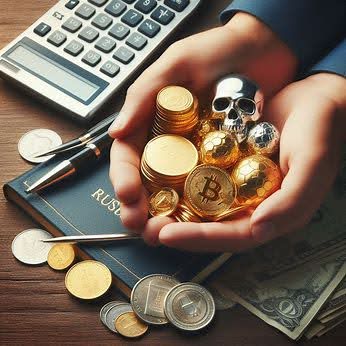Insider trading is a term that evokes strong reactions in the world of finance. It refers to the buying or selling of a company’s stocks by individuals who have access to non-public, material information about the company. This practice can significantly influence the stock market, impacting investor confidence and market integrity. This article explores the intricacies of insider trading, its legal and illegal aspects, regulatory frameworks, and its effects on the stock market.
What is Insider Trading?
Insider trading occurs when individuals with access to confidential information about a company trade its stocks or other securities. Insiders can include corporate executives, directors, employees, or anyone with privileged access to a company’s internal affairs. Insider trading can be classified into two types: legal and illegal.
Legal Insider Trading
Legal insider trading happens when corporate insiders—such as directors, officers, and employees—buy or sell stock in their own companies. This activity is legal as long as it complies with regulatory requirements and is reported to the appropriate authorities, such as the Securities and Exchange Commission (SEC) in the United States. Insiders must file reports of their trades, ensuring transparency and allowing the public to see their actions.
Illegal Insider Trading
Illegal insider trading involves trading based on material, non-public information in violation of fiduciary duty or other relationships of trust and confidence. This type of insider trading is illegal because it gives an unfair advantage to insiders, undermining market integrity and investor trust. Examples of illegal insider trading include:
– A corporate executive using confidential information about a forthcoming merger to buy or sell stock before the news is public.
– An employee tipping off a friend or family member about non-public information, leading to profitable trades.
– A consultant or advisor leveraging privileged information from a client to make trades.
Regulatory Framework
Insider trading regulations are designed to maintain fair and efficient markets by ensuring all investors have equal access to material information. Key regulatory bodies and laws include:
1. Securities and Exchange Commission (SEC)
In the United States, the SEC is the primary regulator overseeing the enforcement of securities laws, including those related to insider trading. The SEC investigates and prosecutes cases of illegal insider trading, imposing fines, penalties, and even imprisonment for violators.
2. Insider Trading Sanctions Act of 1984
This Act increased the penalties for insider trading, allowing the SEC to impose civil penalties up to three times the profit gained or loss avoided through illegal trading.
3. Insider Trading and Securities Fraud Enforcement Act of 1988
This Act further strengthened insider trading laws by enhancing penalties and expanding the scope of who could be prosecuted, including those who indirectly benefit from insider information.
4. European Union Market Abuse Regulation (MAR)
In the European Union, MAR provides a framework for preventing market abuse, including insider trading. It mandates strict disclosure requirements and penalties for violations to ensure market integrity.
The Effects of Insider Trading on Stock Markets
1. Market Efficiency
Insider trading can undermine market efficiency. Markets rely on the fair dissemination of information to price securities accurately. When insiders trade on non-public information, it creates an uneven playing field, leading to mispriced securities and distorted market signals.
2. Investor Confidence
Investor confidence is crucial for the proper functioning of financial markets. Illegal insider trading erodes trust in the market, as investors may feel that the system is rigged against them. This can result in reduced market participation and lower liquidity.
3. Corporate Governance
Insider trading can reflect poor corporate governance practices. When corporate insiders misuse their positions for personal gain, it suggests a lack of ethical standards and internal controls, which can harm the company’s reputation and investor relations.
High-Profile Insider Trading Cases
1. Martha Stewart
One of the most famous insider trading cases involved Martha Stewart, the media mogul, who sold shares of ImClone Systems based on non-public information received from her broker. Stewart was convicted of obstruction of justice and other charges, serving prison time and paying fines.
2. Raj Rajaratnam
Raj Rajaratnam, founder of the Galleon Group hedge fund, was convicted of orchestrating one of the largest insider trading schemes in history. He used non-public information from corporate insiders to make millions in profits. Rajaratnam was sentenced to 11 years in prison and fined millions of dollars.
3. Ivan Boesky
Ivan Boesky was a prominent stock trader in the 1980s who engaged in insider trading by obtaining non-public information about mergers and acquisitions. His case led to significant changes in securities law enforcement and he was fined $100 million and sentenced to prison.
How to Avoid Insider Trading
For individuals working in or around publicly traded companies, it is essential to understand and adhere to insider trading laws to avoid severe legal consequences. Here are some guidelines:
1. Understand the Rules
Familiarize yourself with the laws and regulations surrounding insider trading. Companies often provide training and resources to help employees understand their legal obligations.
2. Follow Reporting Requirements
If you are a corporate insider, ensure that all trades are reported in accordance with regulatory requirements. This includes timely filing of forms and disclosures to relevant authorities.
3. Maintain Confidentiality
Protect confidential information and avoid discussing sensitive company details with anyone outside the organization, including friends and family.
4. Implement Trading Blackout Periods
Many companies establish blackout periods during which insiders are prohibited from trading. These periods typically occur around the time of significant corporate events, such as earnings announcements.
Insider trading plays a complex role in stock markets, straddling the line between legal and illegal activities. While legal insider trading provides transparency and insight into corporate insiders’ actions, illegal insider trading undermines market integrity and investor trust. Understanding the regulatory framework, effects on the market, and high-profile cases can help investors and corporate insiders navigate the complexities of insider trading. By adhering to legal and ethical standards, market participants can contribute to a fair and efficient marketplace.







